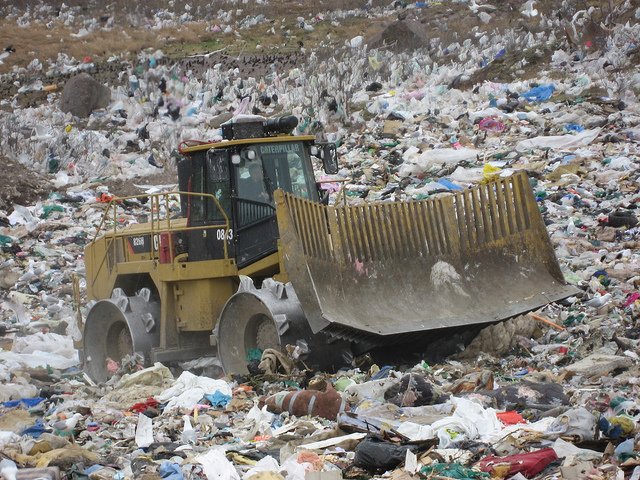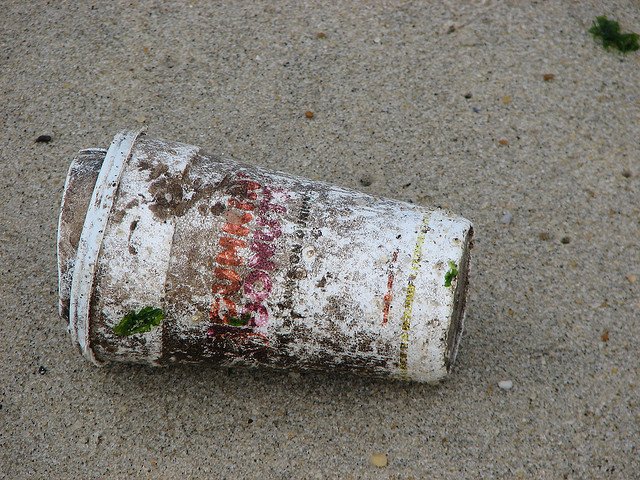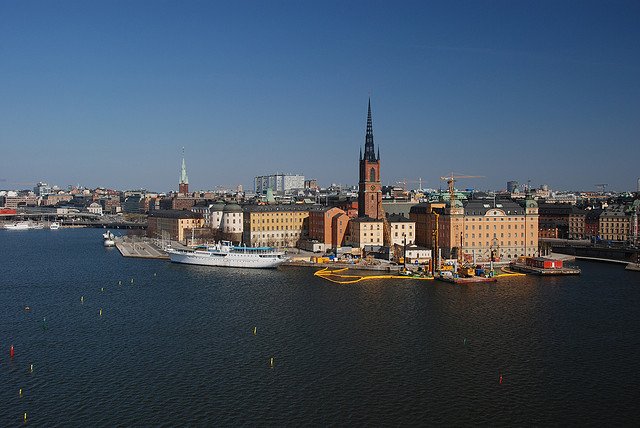Humanity has a tendency to consume things without regard for consequences or global fairness. And this, in turn, puts a massive set of blinkers over countries and creates some jarring contrasts.
Hence overflowing landfills on the one hand and immaculate kitchen counters on the other. Hence huge garbage patches in the ocean and pristine swimming pools. Hence slums and gated, landscaped communities.

Hence halls of seemingly infinite food in rich nations and food scarcity in poor nations.
Hence polluted waterways, soils, and air.
Hence styrofoam.
Why is styrofoam still used in 2015? How are people cool with this? It takes, roughly, 1 MILLION YEARS to decompose.

We should really be using biodegradable mushroom spore packaging.
Ok...So what about Goal 12? What is it?
Goal 12 wants to change how humans, companies and societies as a whole consume. It wants to alter both everyday behaviors and how societies are structured.
Goal 12 wants to get economies to think twice about extracting natural resources so that natural ecosystems can thrive and supplement human life without limit.
Basically, Goal 12 wants to create a lot more circular behavior--economies that reuse what they consume and cut down on overall production and people that think about the consequences of their daily actions.

Information on how to live sustainably has to be made readily available to people everywhere at an early age. Schools have to devote class time to recycling and buying ethically and sustainably.
In my apartment building, I’m constantly baffled by what people recycle. Signs that stipulate what should and shouldn’t be recycled are above each trash can, but my neighbors still put styrofoam and food in the plastics bins, and plastic grocery bags in the paper bins.
And of course, countless recyclables just get tossed in with the regular landfill trash.
If recycling was taught to kids at an early age in school, then I doubt such simple mistakes would be made.
Beyond ordinary people, Goal 12 has to be led by developed countries that have already undergone the traditional phases of industrialization and mass poverty alleviation, and are responsible for the bulk of bad consumption patterns and outcomes worldwide.
Countries have to begin implementing ultra-efficient waste management systems that do things like cut food waste in half by 2030.
Why is food waste such a concern? Let John Oliver explain.
Food waste has to be cut at both the consumer and retail level--meaning that restaurants and stores have to be held accountable for how they dispose of things and regulations have to be enacted that better sort and handle waste.
Next, societies have to more actively regulate chemicals. In many countries, chemical use is open-ended. Until a chemical is irrefutably linked to something harmful, it tends to stay in use.
There are usually organic ingredients that can replace chemicals, but companies generally steer toward chemicals because they are cheaper, can lead to artificially high shelf lives and are generally more potent.
But just because they hold some practical benefits does not mean they should be used. Considerations beyond profit have to take precedence when the side effects are dangerous and bad for the environment.
Companies can restructure production to use natural ingredients for everything from bread to soap.
While this may cut into profits in the short-term, profit should never be the sole motivation of a company.
At the root of most modern economies is a seductive relationship with fossil fuels. Traditionally, economic growth and fossil fuel consumption have rose hand-in-hand.
While the harmful effects of emissions have been known for decades, few countries have been brave enough to cut loose from fossil fuel dependence.
Consequently, the world is hurtling towards dangerous climate change. Major economies show little sign of reversing emissions and emerging economies only show signs of accelerating.
In the years to come, Goal 12 will try to spur countries to drop measures designed to encourage fossil fuels such as subsidies and market locks, while adding measures to encourage investment in alternative energies.
Even if every citizen became an excellent recycler, the main challenge of weaning countries off of carbon would remain.
So who are the leaders?
Sweden is a leader when it comes to cutting fossil fuels.
The country has proven that economic growth can be “decoupled” from increasing emissions, by cutting emissions by 23% over the last 25 years, while growing its economy by 55%.
Sweden is one of the only countries with a carbon tax, a measure that can immediately curb emissions by making companies more attentive to energy usage.

Sweden is also a leader when it comes to cyclical economies. Just 1% percent of the country’s waste ends up in landfills!
Austria manages to send almost nothing to landfills and either recycles or composts 70% of waste, converting the additional 30% to energy.
The US, by contrast, sends 69% of waste to landfills.
What can you do?
First of all, become a proactive recycler. Wherever you are, make an effort to recycle.
Even if you are walking down the street and finish a water bottle and the only thing near you is a regular trash can, hold onto it until you come across a recycling receptacle. Hold onto it if you’re headed to work, headed to lunch, just strolling around. Just don’t throw it in the wrong container.
Buy from companies that reuse materials in an innovative manner. An easier goal: don’t buy from companies that use styrofoam.
Beyond this, call on politicians to reduce dependence on fossil fuels. Call on any investment funds you may be connected to to disinvest in carbon companies.
And go to TAKE ACTION NOW to convince world leaders to make strong commitments to Global Goal 12.